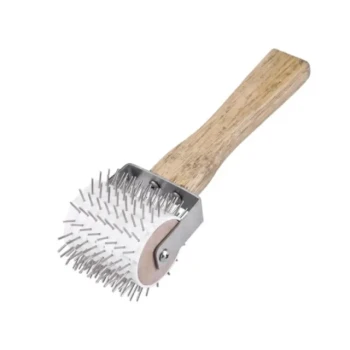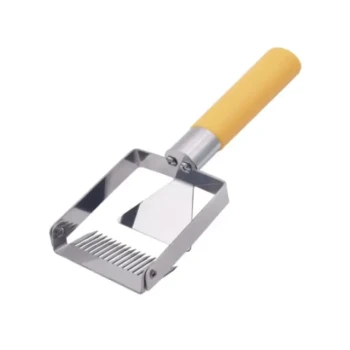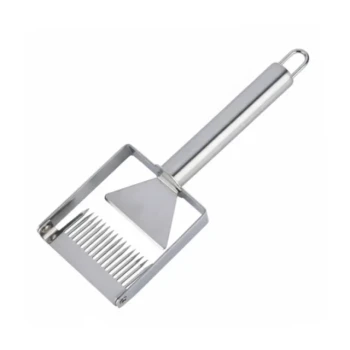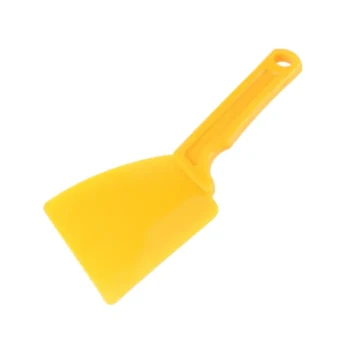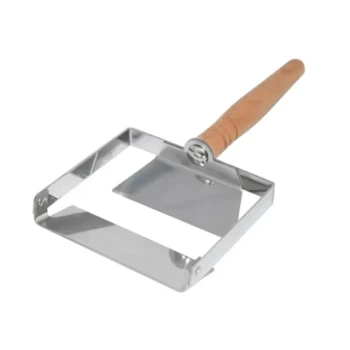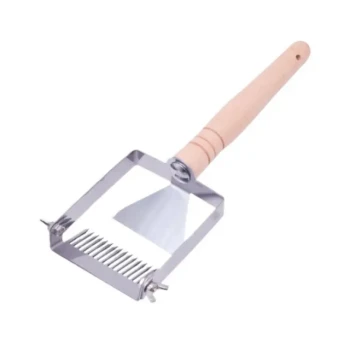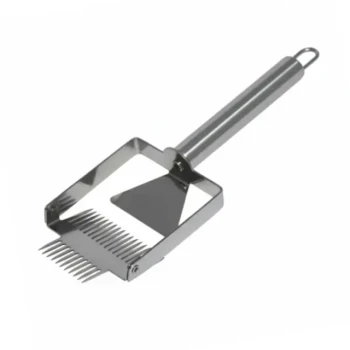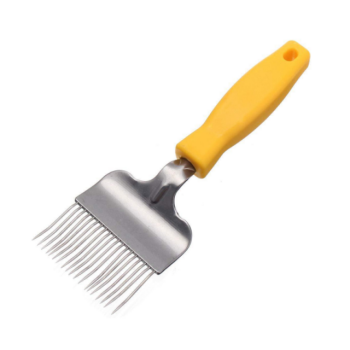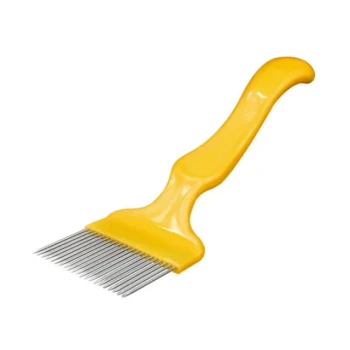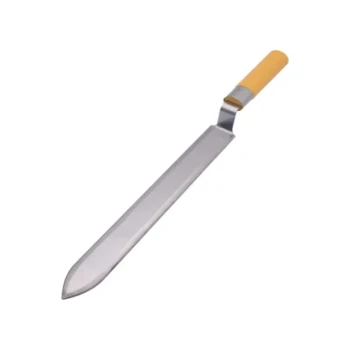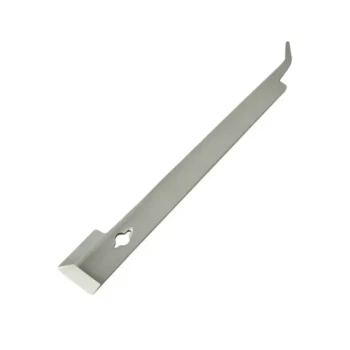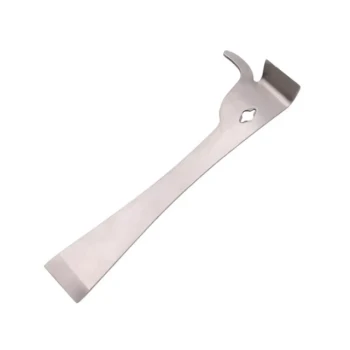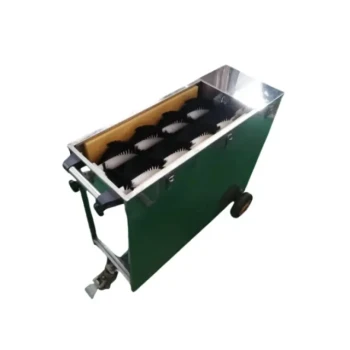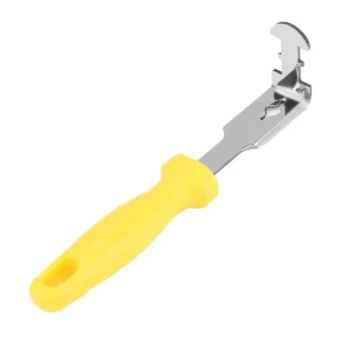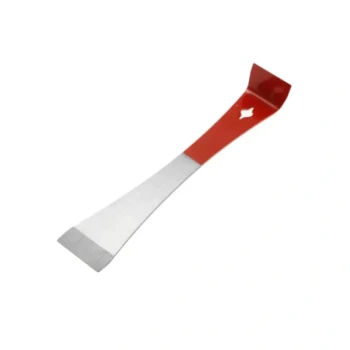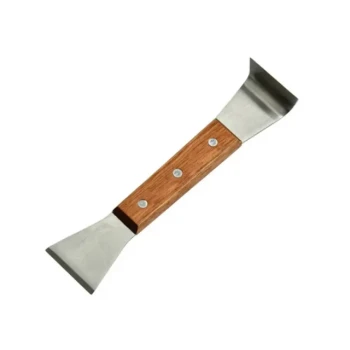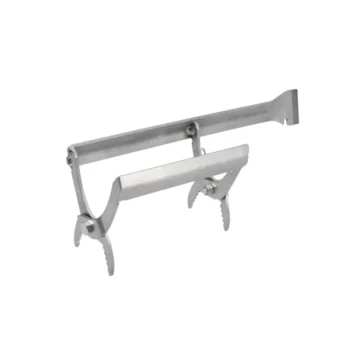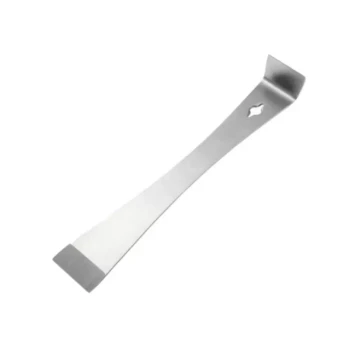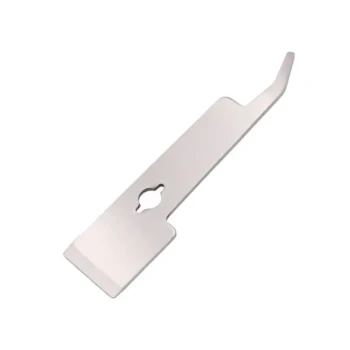In short, an electric heating honey scraper is a specialized beekeeping tool designed to simplify the process of uncapping honeycombs. It uses an integrated electric heating element to warm a flat blade or shovel-like head, which then melts through the beeswax cappings on a honey frame with minimal effort. This process prepares the frame for honey extraction.
The core problem in honey harvesting is removing the protective wax cappings from the honeycomb cleanly and efficiently. An electric heating scraper solves this by applying consistent, controlled heat directly at the point of contact, allowing you to slice off the cappings far more quickly and with less damage to the comb than with traditional cold tools.
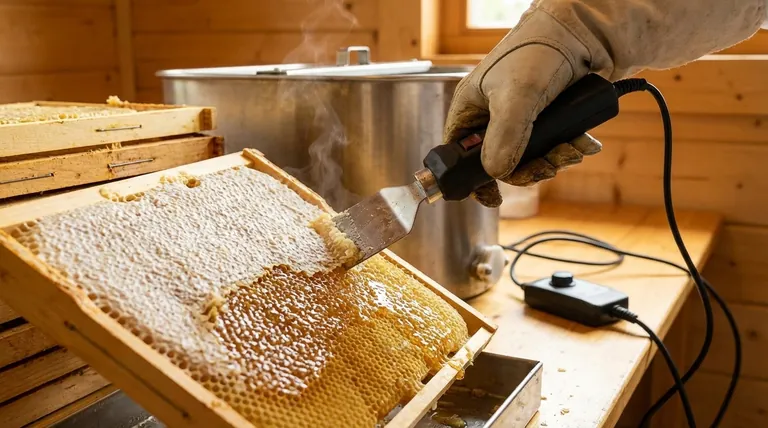
The Core Challenge: Uncapping Honey Frames
Before honey can be extracted, beekeepers must first remove the thin layer of beeswax that bees build to seal and preserve the honey in each cell. This process is known as "uncapping."
Why Uncapping is Necessary
Bees cap their honey to protect it from moisture and contaminants. These wax caps must be sliced off or punctured to allow the honey to flow out when the frames are placed in a centrifugal extractor.
The Limitations of Traditional Tools
For decades, beekeepers have used tools like cold knives, serrated scrapers, and pronged "uncapping forks." While effective, these methods are often slow, physically demanding, and can tear the delicate wax comb, creating more repair work for the bees and potentially resulting in a messier harvest.
How the Electric Scraper Solves the Problem
An electric honey scraper directly addresses the inefficiency of cold tools by introducing heat. This fundamentally changes the interaction between the tool and the wax.
The Principle of Controlled Heat
The scraper's primary function is to heat its blade to a temperature that is just above the melting point of beeswax (around 145°F or 63°C). When the heated blade touches the cappings, it melts the wax on contact, allowing the blade to glide smoothly across the frame's surface. This is analogous to using a hot knife to cut through cold butter.
Key Components of the Tool
An electric scraper typically consists of three main parts:
- The Heated Head: A flat, shovel-shaped blade made of a conductive metal like stainless steel, which contains the heating element.
- The Handle: An insulated handle, usually made of wood or heat-resistant plastic, for safe and comfortable operation.
- The Temperature Controller: A power cord with a built-in dial or switch that allows the user to adjust the blade's temperature.
The Importance of Adjustable Temperature
Adjustable temperature is a critical feature. If the blade is too cool, it will drag and tear the comb instead of slicing cleanly. If it is too hot, it risks scorching the wax and, more importantly, overheating the honey. Overheated honey can lose its delicate aromas and beneficial enzymes, negatively impacting its quality.
Understanding the Trade-offs
While highly effective, an electric scraper is not the perfect solution for every beekeeper. It's important to weigh its advantages against its practical limitations.
Benefit: Speed and Efficiency
For beekeepers processing more than a few frames, an electric scraper offers a dramatic increase in speed. What could take several minutes with a cold knife can often be accomplished in under a minute.
Benefit: Cleaner Cuts and Comb Preservation
The smooth, melting action results in a much cleaner cut. This does less structural damage to the honeycomb, which is a significant advantage. A well-preserved comb can be returned to the hive, saving the bees immense time and energy as they only need to repair the cells and not rebuild them from scratch.
Drawback: Requires a Power Source
Unlike a simple knife or fork, this tool requires electricity. Your uncapping station must be set up near a power outlet, which may be a limitation in rustic or off-grid honey houses.
Drawback: Initial Cost and Learning Curve
An electric scraper is a financial investment compared to a $15 uncapping fork. There is also a brief learning curve involved in finding the optimal temperature and a smooth, consistent technique to avoid gouging the comb or moving too slowly.
Is an Electric Scraper Right for Your Apiary?
Making the right choice depends entirely on the scale of your operation and your primary goals during the honey harvest.
- If you are a hobbyist with just 1-3 hives: The low volume of frames means a traditional cold knife or uncapping fork is often sufficient and more cost-effective.
- If you manage a medium-sized operation (5-20+ hives): The significant time saved during a harvest makes an electric scraper a highly valuable and labor-saving investment.
- If your primary focus is maximizing comb preservation: The clean cut from a heated blade is superior to the tearing action of a fork, saving your bees significant energy and resources post-harvest.
Ultimately, choosing the right uncapping tool is about balancing the demands of efficiency, cost, and the specific scale of your beekeeping goals.
Summary Table:
| Feature | Description |
|---|---|
| Function | Melts beeswax cappings on honey frames for extraction using a heated blade. |
| Key Benefit | Dramatically increases speed and efficiency vs. cold knives/forks; preserves comb. |
| Ideal For | Medium to large-scale beekeepers (5+ hives) prioritizing efficiency and comb preservation. |
| Main Consideration | Requires a power source and involves a higher initial cost than manual tools. |
Ready to upgrade your honey harvest with professional-grade efficiency?
For commercial apiaries and beekeeping equipment distributors, the right tools are critical for productivity and profitability. An electric heating honey scraper from HONESTBEE can transform your uncapping process, saving you valuable time and helping preserve your honeycomb for healthier hives.
HONESTBEE supplies reliable, wholesale-focused beekeeping supplies and equipment designed for the demands of commercial operations. Let us help you equip your business for success.
Contact HONESTBEE today to discuss your equipment needs and wholesale pricing!
Visual Guide
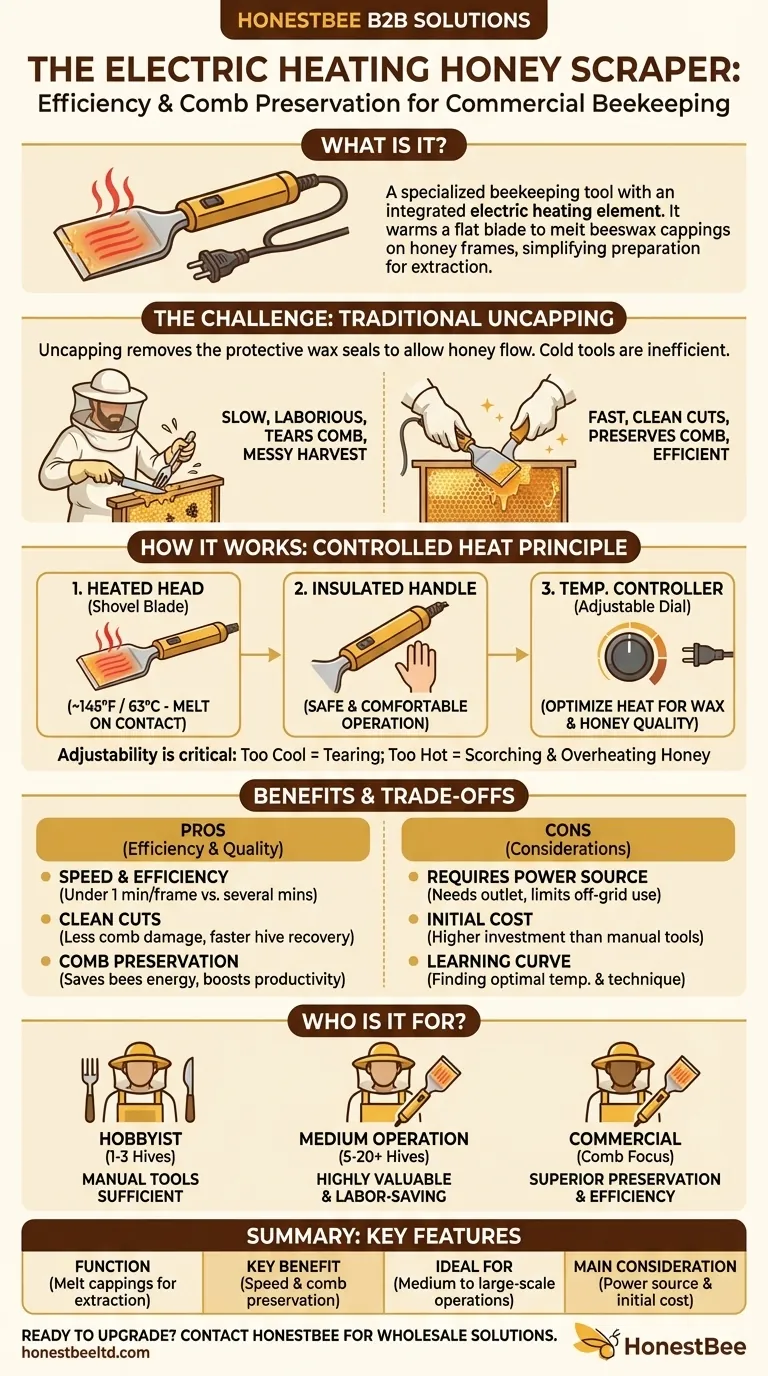
Related Products
- Professional Honey Uncapping Roller for Efficient Harvesting
- Stainless Steel Pivoting Honey Uncapping Fork with Plastic Handle
- All-Stainless Steel Pivoting Honey Uncapping Fork for Beekeeping
- Professional Honey Scraper for Efficient Apiary Maintenance
- Stainless Steel Dual Blade Uncapping Plane
People Also Ask
- What is the purpose of using soap and suds on the roller? Ensure a Clean, Tear-Free Wax Sheet Release
- What are the benefits of using an uncapping roller? Save Bee Energy and Boost Hive Productivity
- What is uncapping honey? Unlock the Key Step to Efficient Honey Harvesting
- What is the role of large harvesting dishes in top-bar hives? Essential Tools for Efficient Honey Collection
- What is an uncapping roller? The Essential Tool for Bee-Centric Beekeepers
